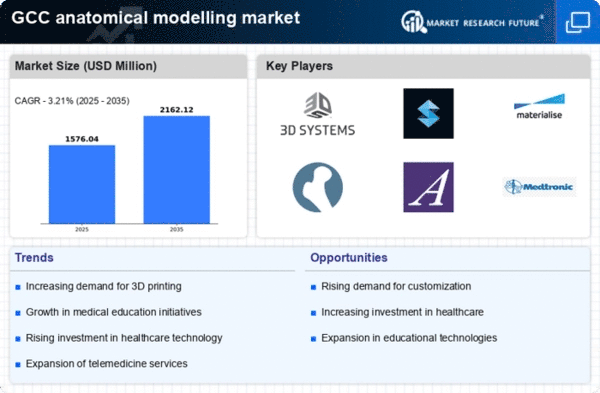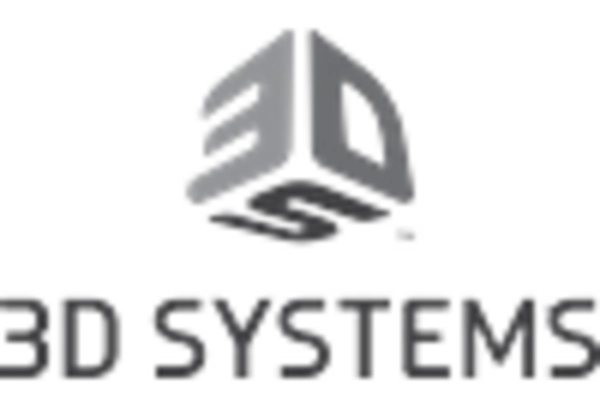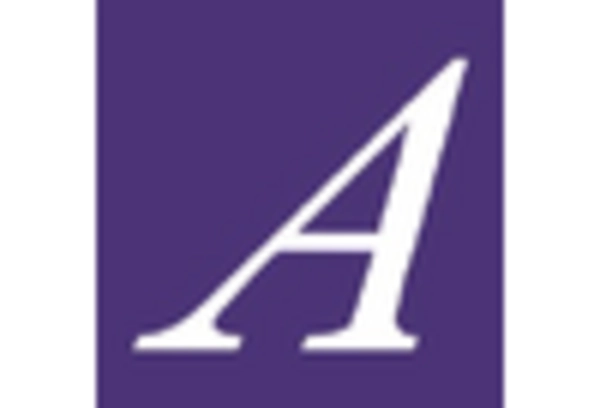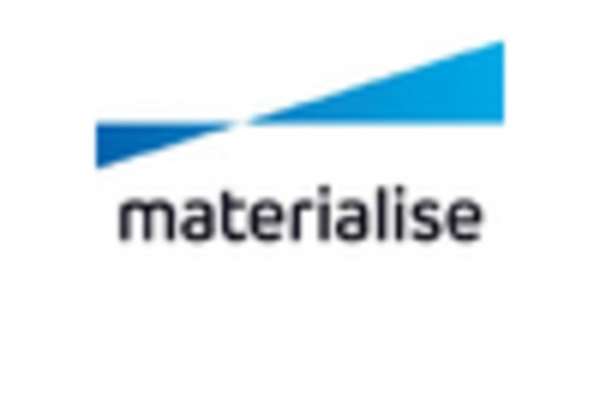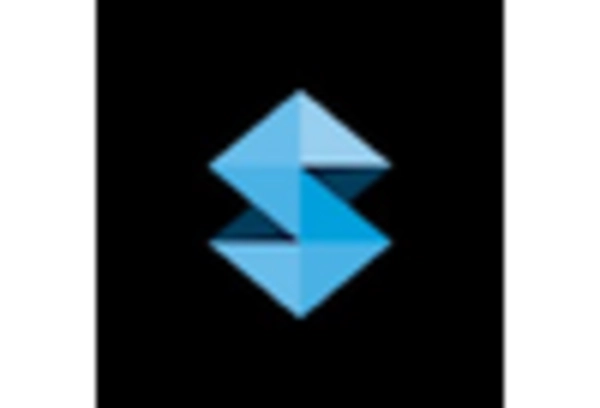Growing Medical Tourism
The anatomical modelling market is positively influenced by the growth of medical tourism in the GCC region. Countries like the UAE and Saudi Arabia are becoming popular destinations for medical procedures, attracting patients from around the world. This influx of patients necessitates the use of advanced anatomical models for pre-surgical planning and training of medical professionals. The medical tourism sector is projected to grow at a CAGR of 15% through 2025, which could lead to increased demand for anatomical models. As healthcare providers strive to maintain high standards of care and attract international patients, the anatomical modelling market is likely to see a corresponding rise in demand for sophisticated anatomical models that enhance surgical precision and training.
Rising Healthcare Expenditure
The anatomical modelling market is experiencing growth due to the increasing healthcare expenditure in the GCC region. Governments are allocating larger budgets to healthcare, which is reflected in the rising investments in medical technologies. For instance, healthcare spending in GCC countries is projected to reach approximately $100 billion by 2025. This surge in funding is likely to enhance the adoption of advanced anatomical models in medical training and surgical planning. As healthcare facilities upgrade their equipment and training methodologies, the demand for high-quality anatomical models is expected to rise, thereby driving the market forward. The anatomical modelling market stands to benefit significantly from this trend, as healthcare providers seek innovative solutions to improve patient outcomes and operational efficiency.
Emphasis on Personalized Medicine
The anatomical modelling market is being driven by the increasing emphasis on personalized medicine within the GCC region. As healthcare providers shift towards tailored treatment plans, the need for precise anatomical models that reflect individual patient anatomy becomes crucial. This trend is supported by advancements in imaging technologies, which allow for the creation of highly detailed models. The market for personalized medicine is expected to grow significantly, with estimates suggesting a CAGR of around 10% through 2025. Consequently, the anatomical modelling market is likely to expand as healthcare professionals seek to utilize these models for better diagnosis, treatment planning, and patient education.
Increasing Focus on Medical Education
The anatomical modelling market is benefiting from the increasing focus on medical education and training in the GCC region. As medical schools and training institutions enhance their curricula, there is a growing need for realistic anatomical models that facilitate hands-on learning. The investment in medical education is projected to rise, with estimates suggesting an increase of 12% in funding for medical training programs by 2025. This trend is likely to drive demand for high-quality anatomical models that can be used in various educational settings. The anatomical modelling market is poised to capitalize on this growth, as educational institutions seek to provide students with the best resources for developing their skills and knowledge.
Integration of 3D Printing Technology
The integration of 3D printing technology into the anatomical modelling market is transforming the way models are produced and utilized. In the GCC region, the adoption of 3D printing is on the rise, with healthcare institutions increasingly investing in this technology to create customized anatomical models. This shift not only reduces production costs but also allows for rapid prototyping and iteration of models tailored to specific surgical needs. The 3D printing market in healthcare is projected to grow at a CAGR of 20% by 2025, indicating a robust potential for the anatomical modelling market. As hospitals and clinics embrace this technology, the demand for innovative and precise anatomical models is expected to surge.


